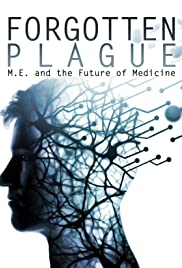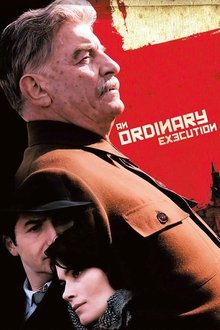
This two-hour special reveals the complicated history, extreme politic, and rigid societal standards that have created a legacy of internal oppression and external aggression. As the North Korean people suffered famine, labor camp and public executions, the Kim regime spent three generations relentlessly pursuing nuclear ambitions. They operate as a criminal syndicate, using counterfeit money, drugs and cyber espionage to fund their war machine. Now, with weapons rivaling the world’s superpowers, their aggressive rhetoric has pushed the world to a crisis point.
You May Also Like

New York Times reporters Megan Twohey and Jodi Kantor break one of the most important stories in a generation — a story that helped launch the #MeToo movement and shattered decades of silence around the subject of sexual assault in Hollywood.

The past collides with the present in this excavation of the Nazi occupation of Amsterdam: a journey from World War II to recent years of pandemic and protest and a provocative, life-affirming reflection on memory, time and what’s to come.

The events of the war in 1944, from the Blue Hills to Sõrve Peninsula. Shown through the eyes of Estonian soldiers who had to pick sides and fight against fellow brothers. Choices have to be made, not only by the soldiers, but also by their loved ones.

An afflicted journalist embarks on a quest to find out why the CDC and medical system have neglected his disease and left millions sidelined from life.

In the summer of 1941, the United States and Japan seem on the brink of war after constant embargos and failed diplomacy come to no end. “Tora! Tora! Tora!”, named after the code words use by the lead Japanese pilot to indicate they had surprised the Americans, covers the days leading up to the attack on Pearl Harbor, which plunged America into the Second World War.

During the last days of Stalin’s reign, a doctor (Marina Hands) tries to go unnoticed in a society of mutual dread where a neighbour or colleague might “denounce” you to the authorities at any moment.But tales of her healing touch have spread and one night she is taken away, not to the infamous Lubyanka prison, but to the Kremlin to attend the ailing Comrade Stalin himself. Uncle Joe (André Dussollier), an old man racked with pain but still as watchful and deadly as a snake.

An arrogant queen becomes a fugitive in her own land after being overthrown by a charismatic revolutionary and must face hardship and danger as she embarks on a voyage to win back her throne.

In 1848 Milan, a thief and a baker witness the chaotic final days of the Italian Revolution.

The Female Closet uses archival photographs, home movies, interviews, and other visual materials to explore the closeted lesbian stories of artists Alice Austen, Hannah Höch and Nicole Eisenman. Utilizing groundbreaking research, newly discovered home movies, and archival photographs, and other visual sources, The Female Closet is a cultural interrogation of the closeted and not-so-closeted lives of three women artists.

Drawing inspiration from a poem penned by Castro Alves, this film vividly captures the political, cultural, and intellectual climate of Brazil during the late 1970s. At its core, the story revolves around four distinctive embodiments of Christ’s image: a black man, a soldier, an Indian, and a guerrilla fighter. These courageous individuals, hailed as the harbingers of doom in the tupiniquim lands, valiantly combat the insatiable avarice and oppressive “civilizing” brutality propagated by the formidable John Brahms—a foreign exploiter devoid of morals.